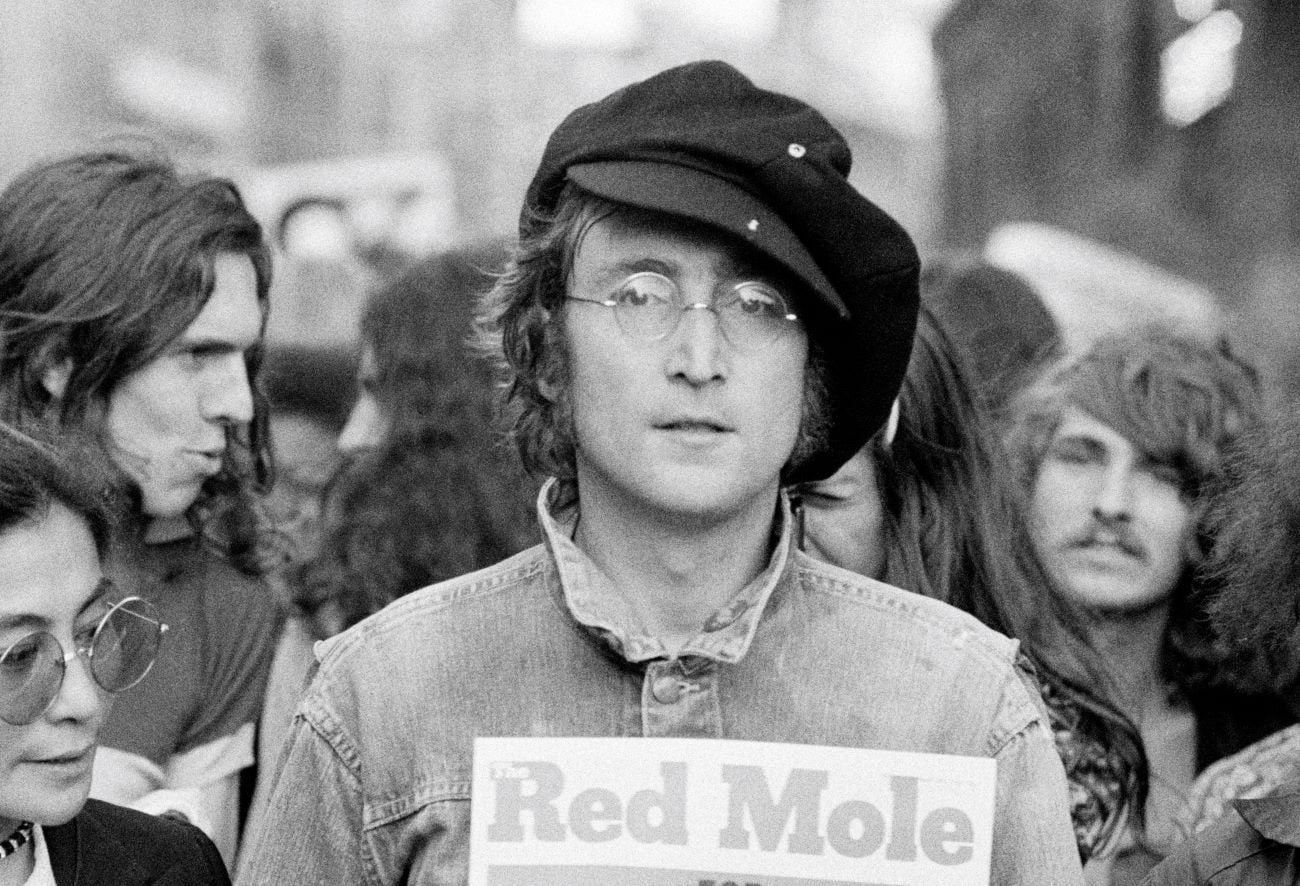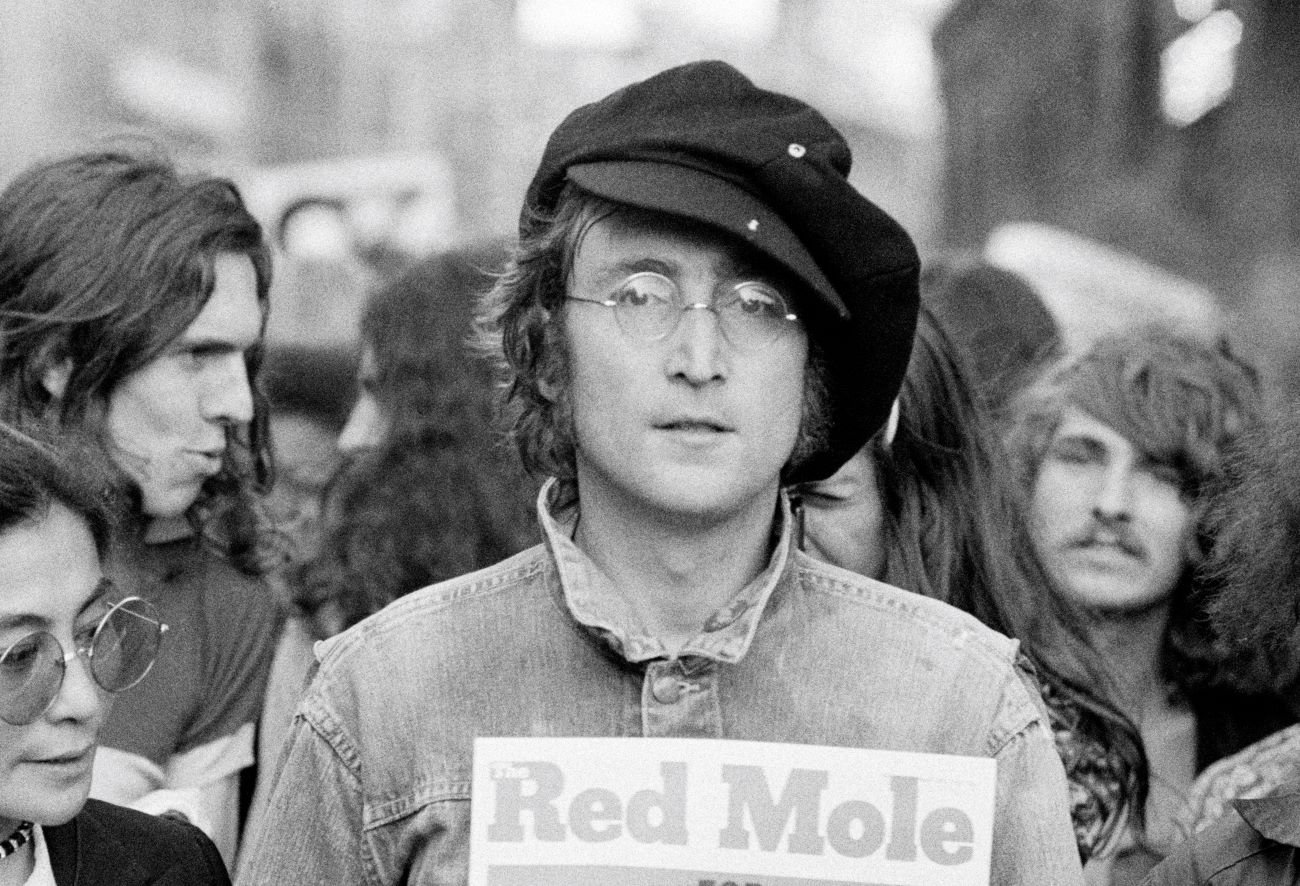
John Lennon Always Wanted to Be a Millionaire, Even if He Had to Be ‘a Crook’ to Make Money
As The Beatles grew in popularity, John Lennon began to make more money than he ever could have dreamed of. Despite this, he’d always had a sense that he would be financially successful. Though he was always short on money when he was a student, he fully expected to be a millionaire one day. He explained that he wanted this so badly that he would have done whatever it took to achieve it.

John Lennon’s girlfriend said he was always short on money
Though he had grand dreams of wealth, Lennon always had to borrow money from his friends.
“John never had any money,” his girlfriend Thelma Pickles said, per the book The Beatles: The Authorized Biography by Hunter Davies. “He was a real bum, borrowing from everybody all the time, getting people to buy him chips or drinks, or cadging ciggies. He must still owe people pounds. But he has a sort of magnetic personality and could always get money out of people.”
His Aunt Mimi gave him half a crown a day, which wasn’t enough to sit at the bar and drink for hours like he wanted.
“She wouldn’t let him go anywhere and only gave him half a crown a day to spend,” Pickles explained. “She was overstrict. We spent hours drinking, or just standing around in the Crack [a pub next to College]. But John couldn’t do much drinking on half a crown, could he?”
John Lennon said he would have done whatever it took to make money
Lennon was in art school, and he didn’t put much effort into his studies, staunch in his belief that he’d make it no matter what.
“I always felt I’d make it, though,” he said. “There were some moments of doubt, but I knew something would eventually happen. When Mimi used to throw things away I’d written or drawn, I used to say, ‘You’ll regret that when I’m famous,’ and mean it. I didn’t really know what I wanted to be, apart from ending up an eccentric millionaire. I fancied marrying a millionairess, and doing it that way.”
If he couldn’t find a millionaire to marry, he said he’d turn to illegal means to make money. He’d even made a halfhearted plan to rob a store.
“I had to be a millionaire,” he said. “If I couldn’t do it without being crooked, then I’d have to be crooked. I was quite prepared to do that — nobody obviously was going to give me money for my paintings. But I was too much of a coward to be a crook. I’d never have made it. I did plan to knock off a shop with another bloke, do it properly for a change, not just shoplifting. We used to look at shops at night, but we never got round to doing it.”
Paul McCartney called him out for portraying himself as working-class
Lennon’s predictions for his future were accurate. Through The Beatles and then his solo career, he amassed a staggering amount of wealth. Despite this, he portrayed himself as a working-class man of the people. His bandmate, Paul McCartney, called him out for this.
“John was no more deep than I am,” McCartney told The Washington Post in 1984. “You look at John’s upbringing and my upbringing, mine made me into a very different kind of person. Mine was a warm, comfortable childhood, not a rich upbringing. His was richer than mine. Nobody knows that. John made himself out to be the big working class hero, but he was the least working class in the group. John had an auntie who gave him a hundred pounds one birthday; that’s still something I wouldn’t give my kids.”


